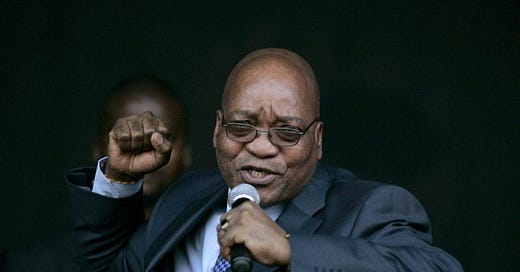Another Time, Another Place... Another Country, Another State of Grace
In order to understand the South Africa of today, and still live with hope, we must understand at least some of the past - its history and its great literature and ideals...

In the fifth century, Rome was sacked by pagan Goths.
This left the Christian world in deep shock. After having been mercilessly persecuted by the Empire in the early days, by some my…
Keep reading with a 7-day free trial
Subscribe to Chris Waldburger to keep reading this post and get 7 days of free access to the full post archives.


